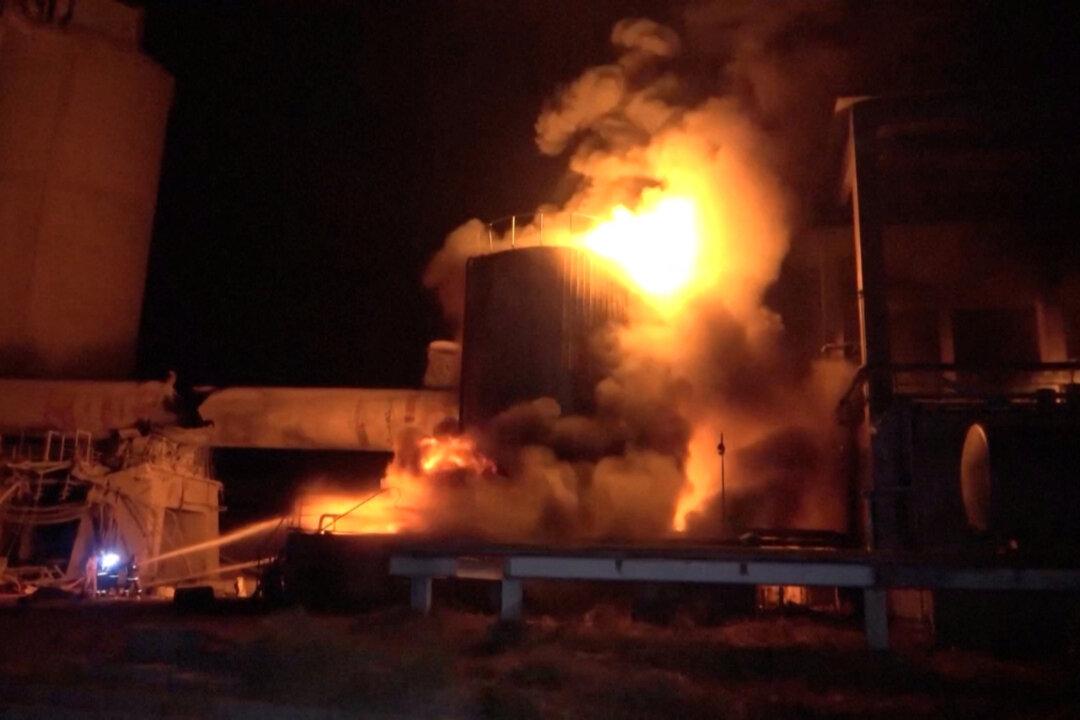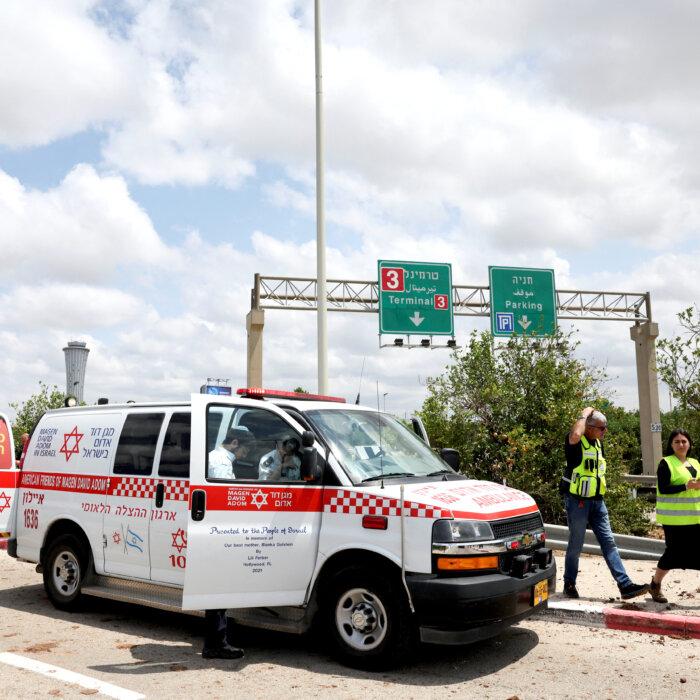Israel carried out airstrikes against Yemen’s Hodeidah Port on Monday, a day after Iran-aligned Houthi terrorists fired a missile that struck near Israel’s main airport, the Jewish state’s military said.
The Israel Defense Forces (IDF) said in a statement that it had attacked Houthi targets in Hodeidah and its vicinity.
“The terrorist infrastructure sites struck in the Hudaydah Port serve as a central supply source for the Houthis, and is used for the transfer of Iranian weapons.
“The ‘Bajil’ Concrete Plant, east of the city of al-Hudaydah, was also struck, which functions as a significant economic resource and is used for the construction of underground tunnels and terrorist infrastructure for the Houthis.”
The full extent of the damage at the port is as yet unknown, but images showed huge fires at the cement factory with firefighters working to control the blaze.
The strikes occurred as two ships were unloading their cargo, with traffic at the port at a complete standstill, a worker at the port told Reuters.
The port is the second-largest in the Red Sea after Aden and is the entry point for about 80 percent of food imports to Yemen.
More than 10 strikes targeted Hodeidah Port and the Al Salakhanah and Al Hawak neighbourhoods in the city of Hodeidah, five residents told Reuters.
Four strikes also targeted a cement factory east of Hodeidah.
Israeli Prime Minister Benjamin Netanyahu had promised to retaliate for Sunday’s missile attack on Ben Gurion Airport. It was the first time a Houthi projectile is known to have escaped interception by Israel’s air defenses since the Houthis resumed attacks in March.
The Israeli military concluded an assessment and said that there had been a technical issue with the interceptor that was launched toward the missile, while the nation’s ambulance service said eight people were taken to the hospital for mild to moderate injuries resulting from the strike.
In a statement Monday reported by Yemen’s state news agency Saba, Houthi spokesman Hashem Sharafuddin said that the “targeting of a port and cement factory in Yemen broadens the range of targets” for the terrorist group within Israel.
The Yemeni group resumed its attacks on Israel and shipping lanes following a brief suspension after the cease-fire between Hamas and Israel in Gaza ended.
The Houthis, who control Yemen, have been firing at Israel and shipping in the Red Sea since the beginning of the war between Israel and Hamas in Gaza, in what they say is solidarity with the Palestinians. Israel has in turn struck against them in Yemen.
They are a self-described arm of Iran’s “Axis of Resistance,” capable of launching regular attacks on Israel.
The U.S. military under U.S. President Donald Trump has also launched an intensified campaign of airstrikes targeting the Houthis since March 15.
Earlier on Monday, the Israeli government approved a plan that may include seizing the Gaza Strip and controlling aid into the enclave.







